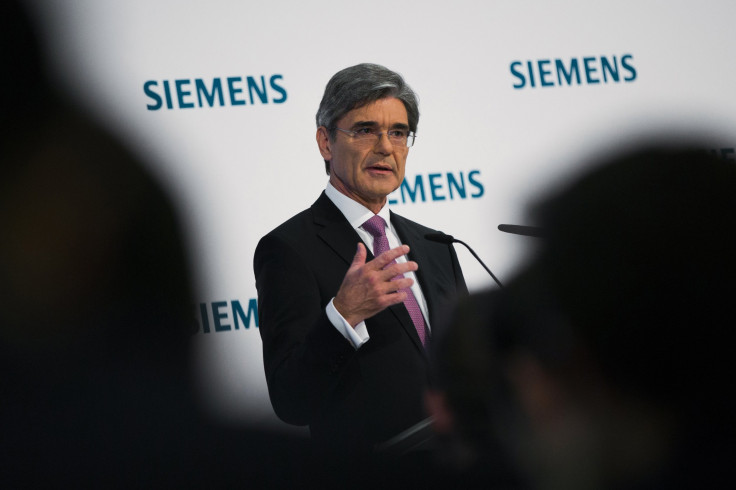Siemens Counts On Trump's Support In Syria, Iraq Reconstruction Projects

KEY POINTS
- Siemens CEO Joe Kaeser said U.S. will support the company in Iraq and Syria
- Kaeser met Trump and senior administration officials in Davos, Switzerland
- Siemens wants to duck the crossfire building up between U.S. and EU
German engineering conglomerate Siemens is betting on the support of President Donald Trump in Iraq and Syria reconstruction projects. Siemens CEO Joe Kaeser said Thursday he had earlier met President Trump and senior administration officials at the World Economic Forum (WEF) in Davos, Switzerland, to clarify the situation, amid simmering transatlantic trade hostilities.
Munich-based Kaeser’s optimism stems from Siemens’ U.S. operations that employ about 60,000 workers directly and benefits another 100,000 indirectly, a report on the website of the CNBV TV said.
Trump has sought to ratchet up trade tensions with the European Union (EU) over new tariffs including on digital services. Kaeser’s move is seen by some as an attempt to duck the crossfire.
“I said ‘look, we have good American workers working for us in the U.S., if we go to Iraq, if we go to Syria, if we help rebuild that country, then I want to be treated as a U.S. company going out and helping those people to get back in line’,” CNBC quoted Kaeser as saying at Davos.
“He said ‘well that is a fair point — if you create jobs, you’re part of us’. It didn’t look like that in Iraq, as you know was a bit bumpy, but there was a good commitment, and that is comfortable,” Kaeser added.
At a meeting with European Commission, President Ursula von der Leyen in Davos Tuesday President Trump reiterated threats to levy substantial tariffs on European automobiles and other imports unless the EU renegotiated a trade agreement.
Siemens has struck a cautious tone for 2020 in its November earnings report, warning of an expected weakening in the global economy. It projects a slowdown for its short-cycle automotive and machinery products.
However, a ‘phase-one’ trade deal between the Washington and Beijing has helped cool some of the global slowdown fears over U.S.-China trade wars.
Kaeser said that the capital goods industry balked from making new investments during times of geopolitical volatility because of a trust deficit as companies were reluctant to invest in building factories overseas until the dust settled. The Siemens chief, however, was all praise for the U.S. administration for its decisiveness.
“When I talk about uncertainty, it is more about the diversity of opinions as to what is going to happen. If the U.S. government says ‘this is what we are going to do,’ you may not like it, but you have the sort of certainty of where we are going,” Kaeser said. “I have to say the U.S. government has been very decisive about what their plans are, so you can decide whether you are part of it or not.”
© Copyright IBTimes 2025. All rights reserved.





















